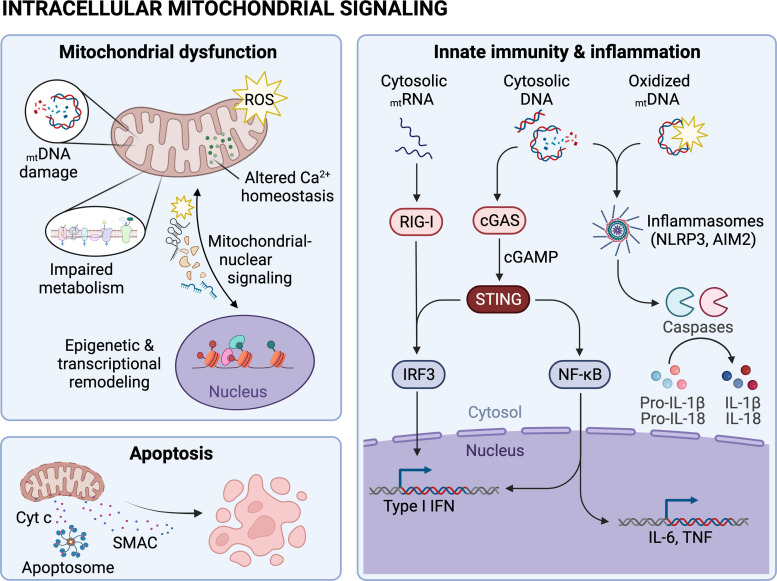Figure 2.
Anticancer therapy (CTx) alters intracellular mitochondrial signaling. Several CTx agents induce mitochondrial dysfunction by promoting mitochondrial DNA (mtDNA) damage, suppressing mitochondrial metabolism, altering mitochondrial Ca2+ homeostasis, increasing production of reactive oxygen species (ROS), altering mitochondrial-nuclear communication, and/or inducing epigenetic and transcriptional remodeling. Mitochondria also play a role in CTx-induced apoptosis through release of cytochrome-c (Cyt c) and second mitochondria-derived activator of caspases (SMAC) and activation of apoptosomes. Nucleic acids in the cytosol, including mtRNA and mtDNA, activate innate immune cascades that ultimately promote inflammation. Image created with Biorender.com and published with permission. AIM2, absent-in melanoma 2; cGAS, GMP-AMP synthase; IRF3, interferon regulatory factor 3; RIG-I, retinoic acid-inducible gene I; STING, stimulator of interferon genes.

